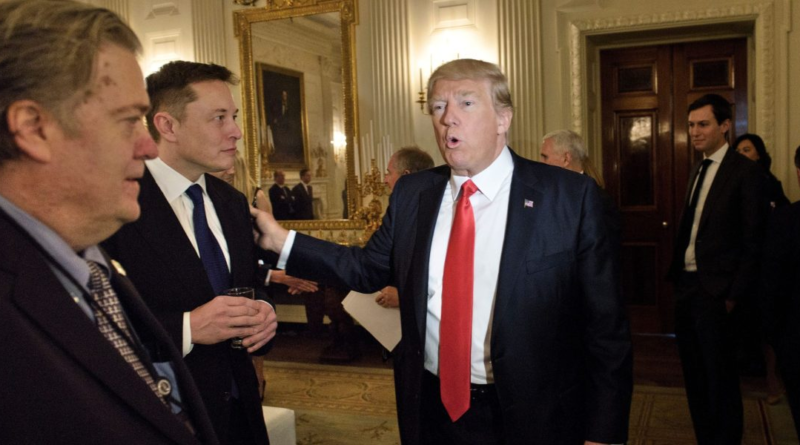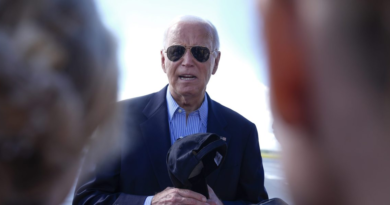Elon Musk’s potential $180 million donation to Trump—who hates EVs—is a stunning risk to Tesla
Former President Donald Trump is not shy about his contempt for electric vehicles.
The Republican nominee’s choice words for the industry are often extremely hyperbolic: He has said that electric cars will “kill” America’s auto industry, and lead to an “assassination” of jobs. Electric car supporters are “thugs,” Trump declared in a post on Truth Social last Christmas. (“May they rot in hell,” he wrote. “Again, Merry Christmas!”)
President Joe Biden’s EV promotion will lead to an auto industry “bloodbath,” Trump said during a March campaign rally. In the same speech, he claimed he would slap a “100% tariff” on electric vehicles made in Mexico but imported to the U.S.
“You’re not going to be able to sell those cars,” he said.
Two months later, Trump offered a deal to oil executives: raise $1 billion for his re-election campaign, and he’ll roll back all of Biden’s “ridiculous” electric vehicle-promoting policies.
The oil executives balked at the deal’s transactional nature. But, the CEO of Tesla, the world’s largest electric vehicle company, has reportedly tapped on Trump’s shoulder and offered a $180 million olive branch.
What will Elon Musk receive in return for potentially the largest financial commitment in this election cycle?
So far, slightly “quieted” rhetoric on electric vehicles.
“Elon’s out there funding SuperPACs and telling donors to give money to Trump, and so Trump, in his kind of calculating, says, ‘Well, I better lay off the EV stuff,’” Michael Murphy, a Republican strategist and CEO of the EV Politics Project, told Fortune. “Trump is maybe turning the corner a little on the anti-EV rhetoric. And I’ll give Elon credit for that.”
Musk’s shift to the right
The Wall Street Journal reported Musk’s $45 million-a-month commitment comes after years of a political shift for the controlling shareholder of X, who is also co-founder of SpaceX and Neuralink, and leader of a new venture, xAI. Tesla did not respond immediately to a request for comment.
While Musk used to be a Democrat-leaning, mostly neutral centrist, he has increasingly criticized Biden on many topics, including immigration, DEI, and what he calls appeals to “wokism.” On his platform, X, formerly Twitter, he frequently makes fun of the left, re-posting memes about pronouns, President Biden’s age, and other thorns in Democrats’ sides.
The feelings are reciprocated: Musk is much less trusted and liked among Democrats, according to Shahar Silbershatz, the CEO of reputational management firm Caliber.
“Based on our data from the Tech CEO study we ran in December 2023, and on our ongoing reputation tracker of Tesla in the U.S.,” Silbershatz told Fortune, “[Musk] gets a Trust & Like Score … of 63 among [Republicans], and 36 among [Democrats], on a 0-100 scale.”
Mike Klimkosky, an EV expert who has long followed Musk, said Democrats are to blame for “turning their backs” on Musk.
“They turned on him because they didn’t like that he was one of the wealthiest people in the world,” Klimkosky said. He added that Biden failed to support Musk’s clean-energy efforts, even when they politically aligned with Democrats.
While Musk’s political ideology clearly began leaning right, he was vague on his stance on the 2024 presidential election until an assassination attempt on the GOP nominee during a campaign rally Saturday. Minutes after the attempt, Musk endorsed Trump as one of the “toughest” presidents and has since supported the candidate nearly non-stop.
Yet, as the CEO of an electric vehicle manufacturer—the Tesla Model Y was the best-selling vehicle last year in progressive California—Musk’s stance could clash with the political leanings of electric vehicle buyers, impacting sales.
“I could see that the Tesla CMO is spending a lot of time down at Mulligan’s bar, you know, having a drink, because it makes their job a lot harder,” Murphy said.
EV buyers may begin to reject Musk
In the case of Tesla, Silbershatz wrote, liking a company and considering purchasing from it are two very different things.
“While Republicans trusted and liked Tesla more than Democrats in December 2023, the consideration score – a measure of how willing one is to purchase a Tesla – was higher among Democrats (38% vs. 31% among Republicans),” Silbershatz said. “This may be linked to the fact that Democrats are more favorably disposed to electric vehicles than Republicans in general.”
Since Tesla’s reputation is already quite polarized, its reputation might not change much in response to Musk’s full-throttled support for Trump, according to Silbershatz. However, overall consideration rates (and, as a result, sales) will very likely suffer, since Democrats make up the greater share of EV buyers in the U.S.
“Considering that the competition is intensifying within the EV category in the US, and that already 33% of Americans say their next EV will be a foreign-made car (according to a Caliber study in June 2024) – this endorsement does not bode well for Tesla’s commercial prospects,” Silbershatz wrote.
Tesla may already have begun feeling the pain. According to data from CivicScience, a consumer analytics platform, Democrats/Liberal favorability for Tesla has fallen to a low of 16% this month, compared to 39% in January. Among Republicans, Tesla’s favorability remains unchanged, at a low-point of 22%.
In the short run, due to the “sad reality” of the politicization of EVs, this seems inevitable, Murphy said. But in the long run, Musk could become “Nixon to China.”
“He could be very helpful to open right-of-center Republican minds that have been getting his tribal messages from Trump and other politicians that EVs are double wagons,” Murphy added.




